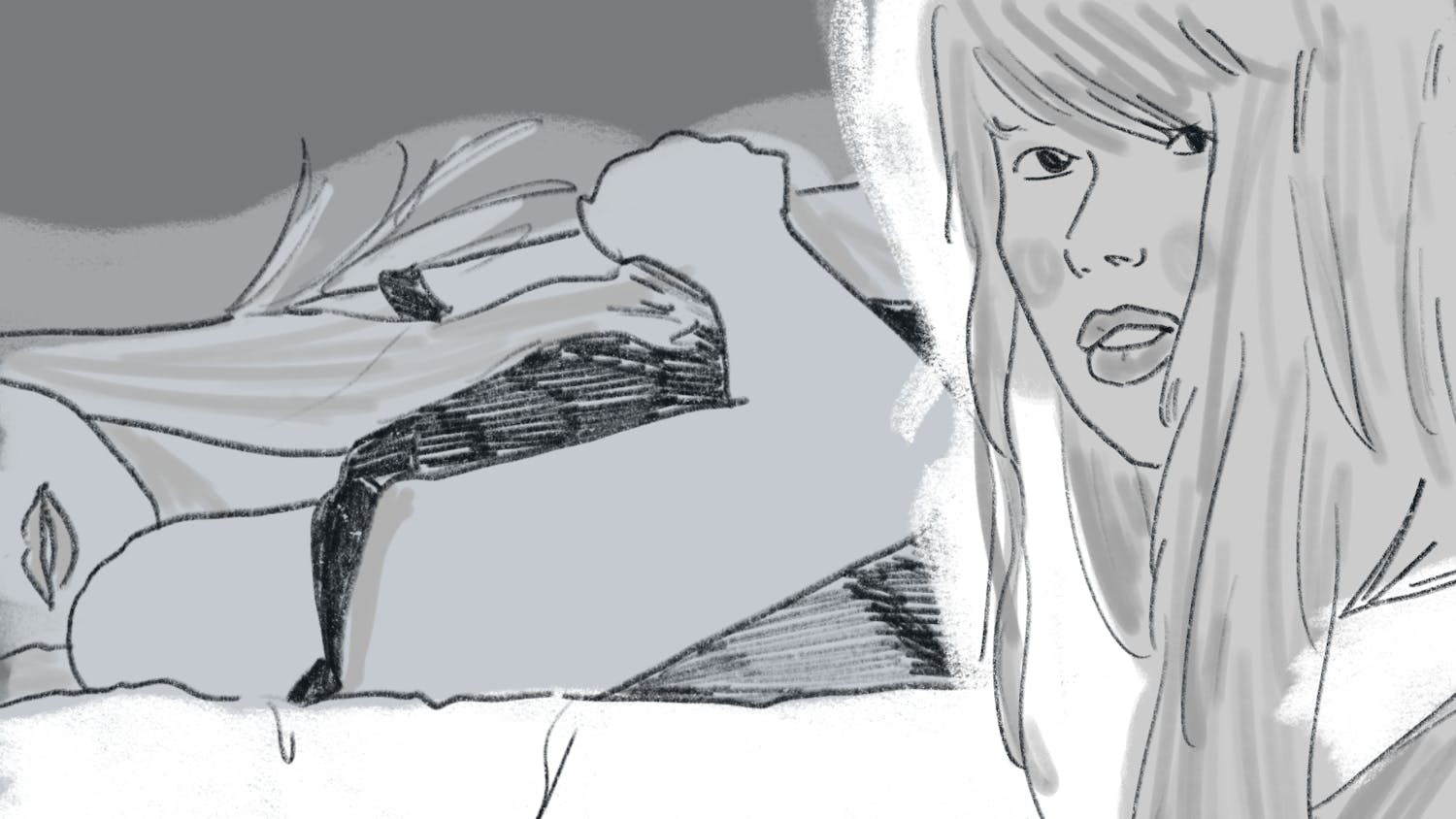The mix of film personalities in the new film "Veronica Guerin" is indeed a perplexing one. Cate Blanchett is essentially the only star with box-office pull in the whole film. Though Blanchett is always at her best in juicy intellectual roles offered by small productions, as witnessed by her performances in such films "Elizabeth," "An Ideal Husband," and "Heaven," she is paired in "Veronica Guerin" with the director-producer team of Joel Schumacher and Jerry Bruckheimer, the kings of the hyper-glossy Hollywood formula film.
This is disappointing, because Blanchett's talent is wasted and the story has the definite potential to make a great film.
It follows the true tale of Irish journalist Veronica Guerin (Blanchett) who gained notoriety in Ireland in 1994 for doggedly pursuing the underground drug problem in Dublin.
But what could have been fashioned into a stirring biopic about journalistic pursuit is trivialized into Hollywood schlock by Schumacher.
Within the first 10 minutes of the film, the audience is already privy to a shot of three young children playing with needles in a grimy Dublin slum, with bright light cascading down over their angelically innocent heads and spooky echoing effects added to the audio track.
One might say that subtlety is not Schumacher's forte.
Any hope that Blanchett, with her amazing expressiveness and usual tact, will bring this film out of the gutter are sadly squandered.
Perhaps it is not her fault, because the screenplay only allows us to see one dimension of Guerin's character.
Blanchett is continually having to flash a coy smirk at her fellow journalists and at the criminals she encounters that is more than just tinged with contempt (it makes you think that its not only the blond shag haircut that makes Blanchett's character seem reminiscent of Martha Stewart). But we never see beyond this smirk any deeper into Guerin's personality.
This is the film's biggest problem. The viewer naturally wants it to be 2003's "Erin Brockovich," but Carol Doyle's screenplay never gives us reason to feel for the title character.
Whereas Steven Soderbergh presented Brockovich as a woman whose crassness was utterly endearing and whose issues were weighty enough to warrant our sympathies, Doyle gives us no way to connect with Guerin on any level besides that of the casual observer.
As a result, Schumacher reverts to such heavy-handed tactics as building up emotion through the usage of slow motion and strobe lighting in the scenes where Guerin is attacked, when the emotional drama of the event at hand should be enough to affect the audience.
In fact, the factual account of the events that followed in the wake of Guerin's death are more emotionally stirring than her death itself.
This is because Guerin's character is a clich within herself. Her emotions, thoughts, and feelings are never displayed, to show how "tough" she is. The problem here is that the viewer just doesn't care enough about her to be moved by her doggedness, because we're never given any reason to feel for her.Additionally, Guerin's family is reduced to one gigantic stereotype. We know nothing about her husband (Barry Barnes) except that he worries about his wife and he installs a new alarm system in their home.
If anyone had any qualms that the Guerins were anything besides a happy Irish family, they are quickly suppressed. If anyone ever thought that Schumacher had any concept of subtlety that too has surely been dispelled.
Strangely though, Colin Farrell shows up for five minutes in the middle of the film (as if to reinforce that yes, indeed, this is a movie about the Irish).
Although his role is pretty much extraneous, his is the only character that interacts with Guerin on a slightly intimate level.
He takes Guerin's uppity personality with a laugh and a grain of salt as they discuss football on the street corner, and his bubbly rapport with Blanchett fills the emotional void of the movie, if only for this brief scene.
It is a welcome little addition to the film, and it leaves us simply yearning to experience Guerin in a more multi-faceted light.
The film comes full circle at the end, taking a page from the Orson Welles playbook. "Guerin" opens with the title character's murder and then back tracks two years to present the events that lead up to it.
But when the film returns to her assassination. The viewer now knows why Veronica had been murdered, but the film has only succeeded in skimming over Veronica as a person, and reducing her to a stereotype of the martyred journalist.
In effect we don't know anymore about Veronica Guerin as a person than we did 92 minutes ago. For a film that was about one woman's absolute dedication to bringing to light all the details of her line of work, this is a sad conclusion indeed.



